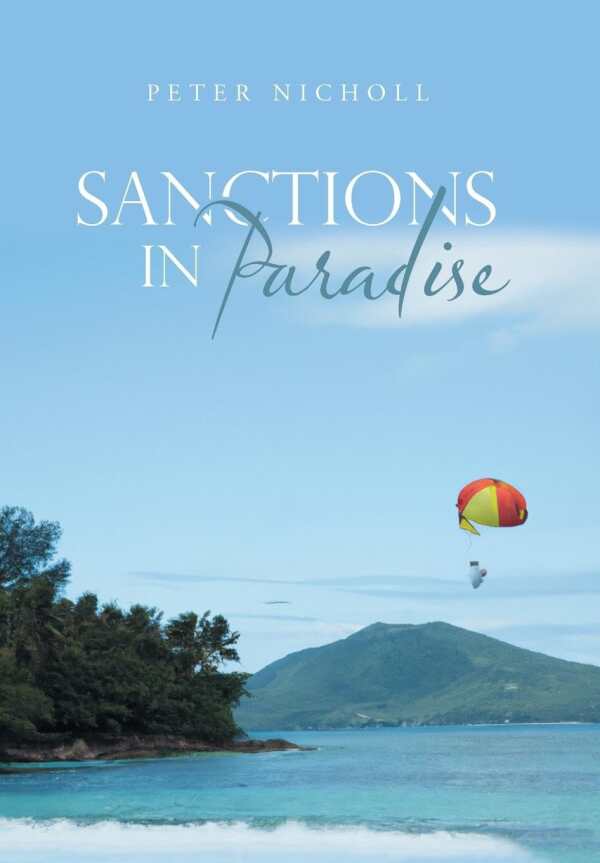Sanctions in Paradise
The exciting political thriller Sanctions in Paradise works to acknowledge racism via an apartheid plot during an island-set conference.
In Peter Nicholl’s novel Sanctions in Paradise, a speechwriter attends a conference whose goal is to impose economic sanctions on South Africa to dismantle the apartheid system.
In 1985, South African agents planted in the Seychelles islands interrupt the conference with violence. A Seychellois police officer, Bernard, works with a British officer, Simon, to anticipate the agents’ next moves. And a speechwriter and junior member of the New Zealand delegation, Peter, feels like he is in the wrong place at the wrong time when he is thrust into the center of the agents’ plot: they murder a conference-goer, and Peter hears the victim’s last words.
After Peter witnesses the conference murder, the plot meanders. There are loose scenes of romantic drama between Peter and a Canadian delegate, Simone; Peter indulges in ruminations about her and seems afflicted with crippling self-doubt. Meanwhile, the investigation is stymied because Bernard—who functions as the book’s underdog hero, facing obstacles that seem insurmountable, including a lack of time and resources—thinks that Simon is a pompous, racist know-it-all, and their mutual disdain and frequent disagreements on the proper courses of action lead to tension. The two waste precious page time arguing with each other before they act. What’s more, Bernard, a Black Seychellois resident, encounters racism from both his enemies and colleagues while trying to stop the pro-apartheid South African infiltrators.
But parts of the South Africans’ scheme are spelled out in long expository paragraphs, depleting related scenes of tension. Awkward, run-on sentences, perspective switches sans sufficient segues, loose punctuation habits, and typographical errors further undermine the story. Further, the themes of structural racism are handled in a too-forceful manner, with clear denunciations of South Africa’s system of apartheid juxtaposed with overt, underinterrogated racist comments by secondary characters. For example, Peter’s guidebook describes Seychellois women as “French enough to have a good figure; English enough to be well-behaved; Asian enough to possess that hint of the exotic; African enough to harbour the call of the wild.” Furthermore, all of the characters, regardless of their backgrounds or ages, refer to people as “blacks” and “whites” when denoting race, creating a dizzying whiplash wherein racism is both acceptable within the world of the text and not.
Via an exciting framework, the political thriller Sanctions in Paradise works to acknowledge racism via an apartheid plot during an island-set conference.
Reviewed by
Leah Block
Disclosure: This article is not an endorsement, but a review. The publisher of this book provided free copies of the book and paid a small fee to have their book reviewed by a professional reviewer. Foreword Reviews and Clarion Reviews make no guarantee that the publisher will receive a positive review. Foreword Magazine, Inc. is disclosing this in accordance with the Federal Trade Commission’s 16 CFR, Part 255.

